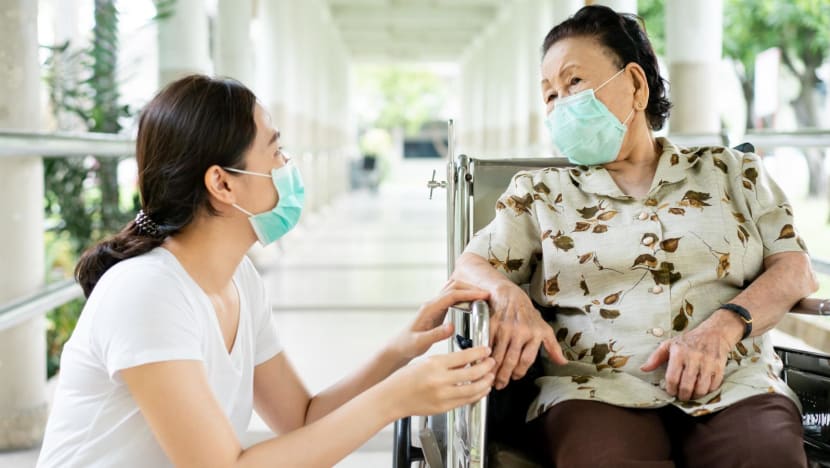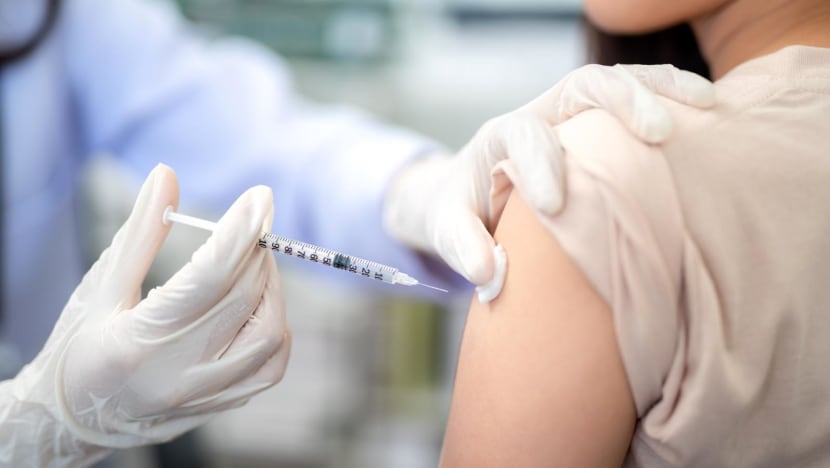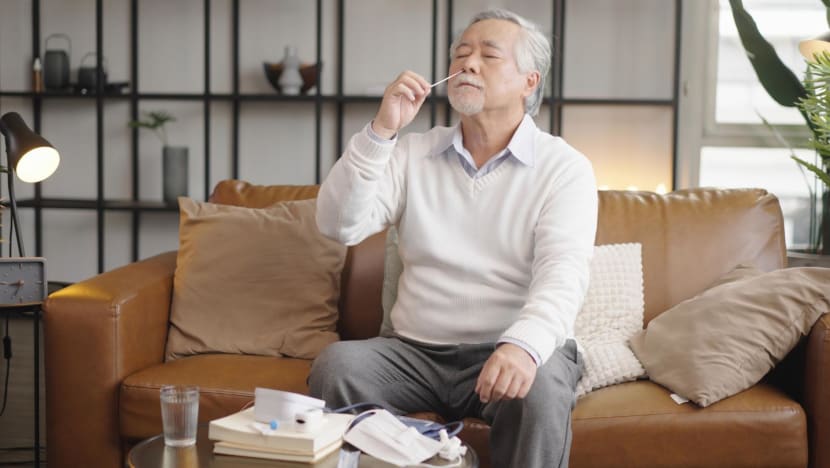COVID-19: Why vigilance still matters for high-risk groups
An expert discusses COVID-19’s cumulative impact on health and why testing and timely management are crucial for vulnerable persons.

Seniors aged 60 and above remain at heightened risk of severe complications from COVID-19. Photos: Shutterstock

This audio is generated by an AI tool.
As we approach 2025, it’s been nearly two years since Singapore declared COVID-19 an endemic disease. Yet, as Dr Leong Hoe Nam, an infectious disease physician at Rophi Clinic, reminds us, “this shift in terminology does not lessen the harmful effects of COVID-19”.
With the virus continuing to evolve, new variants may bring increased transmissibility and severity. Staying vigilant and practising good hygiene remain essential – especially during the festive season when travel and social gatherings create more opportunities for the virus to spread.
THE LASTING HEALTH EFFECTS OF COVID-19
While the original COVID-19 virus has mutated into less severe strains that typically cause milder infections in most healthy individuals, a significant group remains at risk of severe complications. These include people aged 60 and above, as well as those who are immunocompromised or have chronic health conditions such as hypertension, diabetes, and heart, respiratory or kidney disease.

Pregnant women are also considered high-risk, noted Dr Leong, as their immune systems must safeguard both themselves and their foetuses. “A recent study found that contracting COVID-19 in the first half of pregnancy heightens the risk of developing gestational diabetes mellitus in the second half,” he added.
According to the COVID-19 Diagnostics and Therapeutics Consumer Study conducted independently by Ipsos, 61 per cent of high-risk persons surveyed in Singapore did not consider themselves high-risk, while another 17 per cent were uncertain.
For these individuals, the consequences of contracting COVID-19 can be more severe than for healthy people. Dr Leong explained that repeated infections may have a cumulative effect, impacting health long after each infection subsides.
“These complications can involve multiple organ systems, including the cardiac, gastrointestinal, musculoskeletal and neurological systems,” he said, citing a study showing that mortality and health deterioration continued to affect those hospitalised for COVID-19 even three years after infection.
WHY PREVENTION IS PARAMOUNT

In light of reinfection and transmission risks, Dr Leong underscored that updated vaccinations are the most effective way to address these concerns. However, around 80 per cent of the population has not received a dose in the past year, despite having completed their initial or booster shots. Consequently, population immunity is likely to have waned, as reported by the Ministry of Health (MOH).
Receiving an updated dose of the vaccine helps retrain the body to respond effectively, providing protection against emerging variants, shared Dr Leong. “This is similar to regularly updating a mobile phone’s operating system to guard against evolving digital threats. The COVID-19 virus is not static and our defences shouldn’t be either.”
MOH advises seniors aged 60 and above, medically vulnerable individuals from six months old and residents of aged care facilities to receive an updated COVID-19 dose at least five months after their last shot. Healthcare workers as well as those living or working with medically vulnerable persons are also encouraged to stay up to date with their vaccinations.
HOW TESTING ENSURES PROMPT DISEASE MANAGEMENT

With updated vaccination uptake reportedly low, COVID-19 testing continues to play an important role. Despite this, the Ipsos survey highlighted a decline in testing since February 2024, with only 42 per cent of individuals in Singapore reporting testing at home or in a clinic in the last three months due to illness or COVID-19 symptoms. Many attributed this to reduced concern about the illness, even when COVID-19 was suspected.
Dr Leong stressed the importance of testing if someone falls ill or is exposed to the virus: “Widespread testing is crucial for identifying symptomatic and asymptomatic cases, enabling timely clinical management and reducing further transmission.”
The Ipsos survey also showed a decrease in respondents’ preference for seeking treatment if they contracted COVID-19. Between wave 9 (February 2024) and wave 10 (May 2024) of the study, the figure fell from 45 per cent to 37 per cent. Among those diagnosed in the past 12 months who did not consult a healthcare professional, common reasons cited included choosing to self-isolate or perceiving their symptoms as not severe enough to warrant medical attention.
However, Dr Leong advised high-risk patients who test positive for COVID-19 to consult a doctor immediately, even if symptoms seem mild. Available treatments can help reduce the risk of severe disease and hospitalisations, particularly for medically vulnerable patients. Administered early, these treatments can also help prevent the secondary transmission of COVID-19 to close contacts.
To better protect loved ones, individuals infected with COVID-19 who live with vulnerable persons should practise good hygiene, such as wearing a face mask in shared spaces, washing their hands regularly and maintaining a distance of at least 2m from other family members.
“There is no room for complacency,” cautioned Dr Leong. “Although Singapore has entered an endemic phase, we must stay vigilant and uphold proper hygiene measures to reduce the risk of COVID-19 infection.”
Discover if you could be at high risk of severe COVID-19.
This article is sponsored by Pfizer Singapore. The opinions expressed in this article are solely those of the expert(s), speaker(s) or participant(s) featured herein. This material is intended for educational and/or disease awareness purposes only and should not be used as a substitute for consulting a healthcare professional. For more information, speak to a healthcare professional. References are available upon request.
PP-C1D-SGP-0195/26NOV2024















